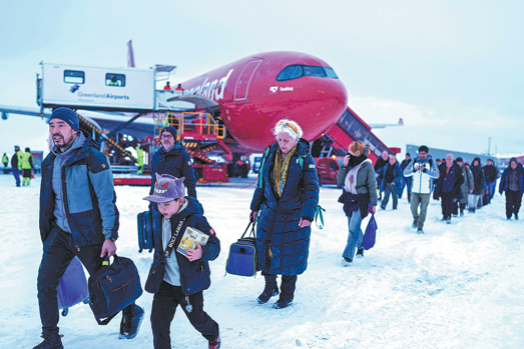US bipartisan bill targeting Chinese firms
By LIU YINMENG in Los Angeles | China Daily | Updated: 2019-12-16 09:58
A bipartisan bill heading to the White House which targets Chinese transit suppliers has raised concern among some officials and experts who are worried it could destroy local jobs and hinder the development of the domestic electric bus industry.
"This is clearly just a play by other businesses to have an unfair advantage in competing," said Mayor R. Rex Parris of Lancaster, California, who was instrumental for bringing the manufacturing facility of Build Your Dreams, or BYD, to his city.
Congressional leaders reached consensus last week on the language of the National Defense Authorization Act 2020, which includes a provision that bans the use of federal money from public transit agencies for procuring Chinese electric buses and rail cars.
A House version would have only barred rail cars, but a Senate version, which affects both rail cars and electric buses, eventually prevailed. The bill is making its way to US President Donald Trump's desk, who has indicated that he will sign it.
The provision will go into effect in two years. The measure excludes pre-existing contracts, but new contracts awarded between now and 2021 won't be grandfathered in.
Those in favor of the bill characterize Chinese-made vehicles and rail cars as a potential threat to national security and an attack on the US economy.
The passage of the bill will negatively affect companies like Shenzhen-based BYD, the world's largest electric vehicle manufacturer, which employs over 750 workers in the United States. China Railway Rolling Stock Corporation, which has won contracts to supply rail cars to transit agencies in Los Angeles, Philadelphia, Chicago and Boston, will also be impacted.
BYD said in a statement that the provision was "crafted by special interests and competitors to shrink the US electric bus market by targeting BYD, one of only three major manufacturers of electric buses in the United States."
"This unfortunate decision rewards a special interest misinformation campaign to squash competition in the electric bus sector and could weaken American competitiveness, threaten hundreds of union jobs, and undercut our country's fight against climate change," BYD added.
The company said it would continue to grow its business before the provision took effect, adding that the provision would not affect private BYD costumers or state projects that did not use federal transit money for their purchases.
BYD's clients included public transit agencies, but it also sells its products to universities, airports and private operators.
Speaking about the company's contribution to Lancaster, Parris said: "BYD turned our economy around. It put 1,000 people to work, and with a promise of another 2,000. That's a lot of people in a city with 160,000 people in it That solves the unemployment problem we have."
The passage of the bill could cost hundreds of stable union jobs, said BYD employees in an October petition which was then delivered to Representative Kevin McCarthy of Bakersfield, who represents the district in Congress the BYD plant is based in. The petition was signed by over 450 employees at the company.
In the petition, Luis A. Morales, a combat veteran with two honorable discharges and 12 years of service, wrote: "BYD has been the first stable job I have had since I left the military. A disabled veteran with PTSD, I have made my home at BYD. I hope to make it my career. With this I make my living for my spouse and children."
The petition indicated that the provision was led by a manufacturing group in the nation that wanted to suppress Chinese competition.
As for Parris' view on the legislation, he said: "Ultimately it's going to cause large Chinese corporations to avoid investing in the US.
"I think that was the intent of the bill, by the way. I don't think this bill has anything to do with national security. I think it has to do with the US manufacturers' association of wanting to stop Chinese competition," Parris said.
























